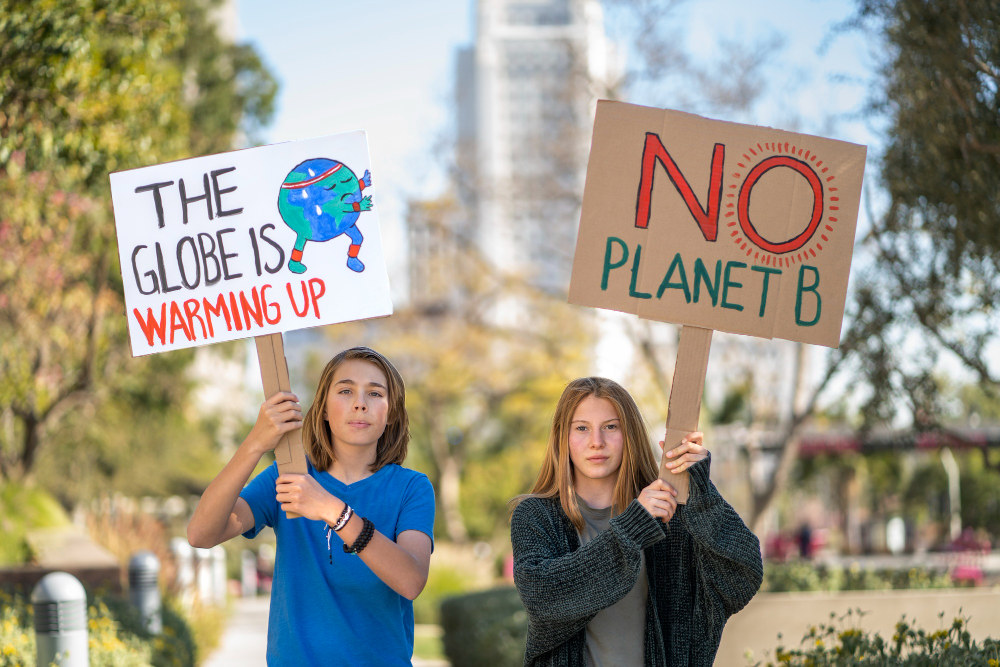How Climate Change Is Impacting Human Health and Biology
Climate change is no longer a distant environmental concern — it’s a global health crisis reshaping the very biology of humankind. From rising temperatures and air pollution to emerging diseases and food insecurity, the effects of climate change are reaching deep into our bodies, altering how we live, breathe, and survive.
In this article, we’ll explore how climate change is transforming human health and biology, and why understanding these effects is essential for the survival of future generations.
The Biological Toll of a Changing Planet
As global temperatures rise and weather patterns become erratic, the human body is being forced to adapt faster than ever before. The biological systems that regulate temperature, immunity, and metabolism are under unprecedented stress.
1. The Human Body’s Struggle with Heat
Extreme heat is one of the deadliest effects of climate change. When temperatures exceed what the body can regulate, the results can be catastrophic.
Biological Impacts:
- Increased risk of heatstroke and dehydration
- Strain on the cardiovascular system
- Reduced kidney function due to chronic dehydration
- Higher mortality among vulnerable populations, especially the elderly
Cities across the world are recording record-breaking temperatures, forcing the human body to operate beyond its physiological comfort zone.
2. Air Pollution — The Invisible Killer
As fossil fuel use rises, so does air pollution, which now kills more people annually than tobacco. Tiny airborne particles known as PM2.5 penetrate deep into the lungs and bloodstream, leading to chronic diseases.
Health Effects of Polluted Air
- Respiratory diseases like asthma, bronchitis, and COPD
- Cardiovascular problems from inflamed blood vessels
- Neurodegenerative effects, including higher risks of Alzheimer’s and Parkinson’s
- Developmental issues in children due to oxygen deprivation in the womb
Biological Response
Chronic exposure to pollution alters gene expression and triggers epigenetic changes, meaning air pollution can impact not just us — but future generations through heritable biological damage.
3. Changing Disease Patterns — The Rise of Climate-Driven Infections
One of the most alarming consequences of climate change is the expansion of infectious diseases into new regions.
As temperatures rise, mosquitoes, ticks, and other vectors thrive in areas where they previously couldn’t survive.
Examples of Emerging Threats
- Malaria and dengue spreading into temperate regions
- Lyme disease advancing northward in the U.S. and Europe
- Zika virus reemerging in previously safe zones
- Increased cases of cholera and diarrhea due to contaminated water
These changes show how climate change rewires global biology, turning the environment into a breeding ground for pathogens.
4. Food and Nutrition — The Hidden Crisis
Climate change is also impacting the nutritional quality of our food.
Crops exposed to higher levels of carbon dioxide (CO₂) grow faster but contain less protein, iron, and zinc.
Meanwhile, droughts, floods, and heat waves reduce overall yields, worsening food insecurity worldwide.
Biological Consequences
- Malnutrition and weakened immune systems
- Slower growth and cognitive development in children
- Higher risks of anemia and vitamin deficiencies
- Altered metabolism and gut microbiome due to poor diet diversity
The human body depends on balanced ecosystems for nourishment — and those ecosystems are collapsing.
5. Water Scarcity and Disease Transmission
Climate change disrupts rainfall patterns, creating both floods and droughts — each with devastating health effects.
Health Impacts
- Floodwaters spread waterborne diseases like cholera and leptospirosis
- Droughts reduce access to clean water, leading to hygiene-related infections
- Stagnant water after storms becomes a breeding ground for mosquitoes and parasites
As freshwater sources shrink, billions face the dual threats of dehydration and infection — a biological and humanitarian crisis combined.
6. The Mental Health Impact of Climate Anxiety
Beyond physical health, climate change is deeply affecting the human mind.
Millions now suffer from eco-anxiety, a chronic fear of environmental collapse. Extreme weather events like hurricanes, wildfires, and floods also cause post-traumatic stress disorder (PTSD), depression, and grief.
Neurological and Biological Effects
- Prolonged stress alters cortisol levels and weakens immunity
- Climate anxiety triggers chronic inflammation and disrupts sleep cycles
- Young people experience climate-related despair, affecting long-term mental health
This new wave of psychological biology reveals that our environment shapes not only our bodies — but also our emotions and behavior.
7. Migration and Evolutionary Pressure
As habitats become uninhabitable due to rising seas, drought, or heat, humans are migrating en masse. This environmental migration exerts new evolutionary pressures on the human species.
Potential Biological Adaptations
- Increased heat tolerance and sweat gland activity
- Changes in skin pigmentation due to altered UV exposure
- Evolving microbiomes adapted to different climates and diets
While these adaptations may take centuries, the process has already begun — climate change is driving human evolution in real time.
8. Reproductive Health at Risk
High temperatures and pollution levels are now being linked to declining fertility rates in both men and women.
Scientific Findings
- Heat damages sperm production and motility
- Air pollution disrupts hormonal balance and menstrual cycles
- Pregnant women exposed to pollution are more likely to experience premature births and low birth weight
These effects suggest climate change could influence population dynamics and reproductive biology for generations to come.
9. The Climate-Cancer Connection
Recent research has found that extreme weather and pollution increase cancer risk.
How It Happens
- Heat stress accelerates cellular damage and DNA mutations
- Pollutants contain carcinogens that accumulate in tissues
- Immune suppression from chronic stress weakens the body’s ability to fight cancer cells
This means climate change is not just an environmental crisis — it’s a cancer risk factor written into our biology.
10. The Feedback Loop Between Biology and the Planet
Perhaps the most astonishing discovery is that human biology isn’t just affected by climate change — it also contributes to it.
Examples
- Changes in human diet and metabolism alter carbon footprints.
- The global demand for food and energy accelerates deforestation and emissions.
- Human health crises (like pandemics) disrupt economic systems that could otherwise combat climate change.
In essence, the human body has become both a victim and a driver of planetary change — a biological reflection of the environment we’ve created.
A Biological Call to Action
The connection between climate and health is now undeniable. Scientists, doctors, and policymakers agree that protecting the planet means protecting ourselves.
What Must Be Done
- Transition to clean energy to reduce pollution-related diseases.
- Invest in climate-resilient healthcare systems.
- Promote sustainable agriculture and water management.
- Support mental health initiatives addressing eco-anxiety.
Our biology evolved to thrive on a stable planet — and the faster we restore that stability, the healthier humanity will be.
Conclusion
Climate change is rewriting the story of human biology. It affects how our cells function, how our genes express themselves, and even how we think and feel.
If left unchecked, it could erode the very foundation of human health. But if we act now — guided by science, innovation, and compassion — we can turn this crisis into an opportunity to heal both the Earth and ourselves.
Because saving the planet isn’t just about ecosystems or weather patterns — it’s about preserving the biology of life itself.











